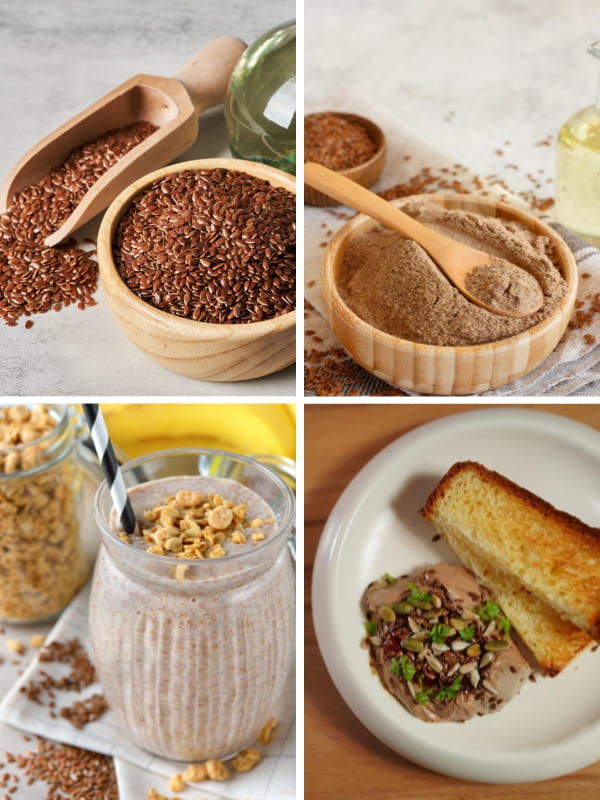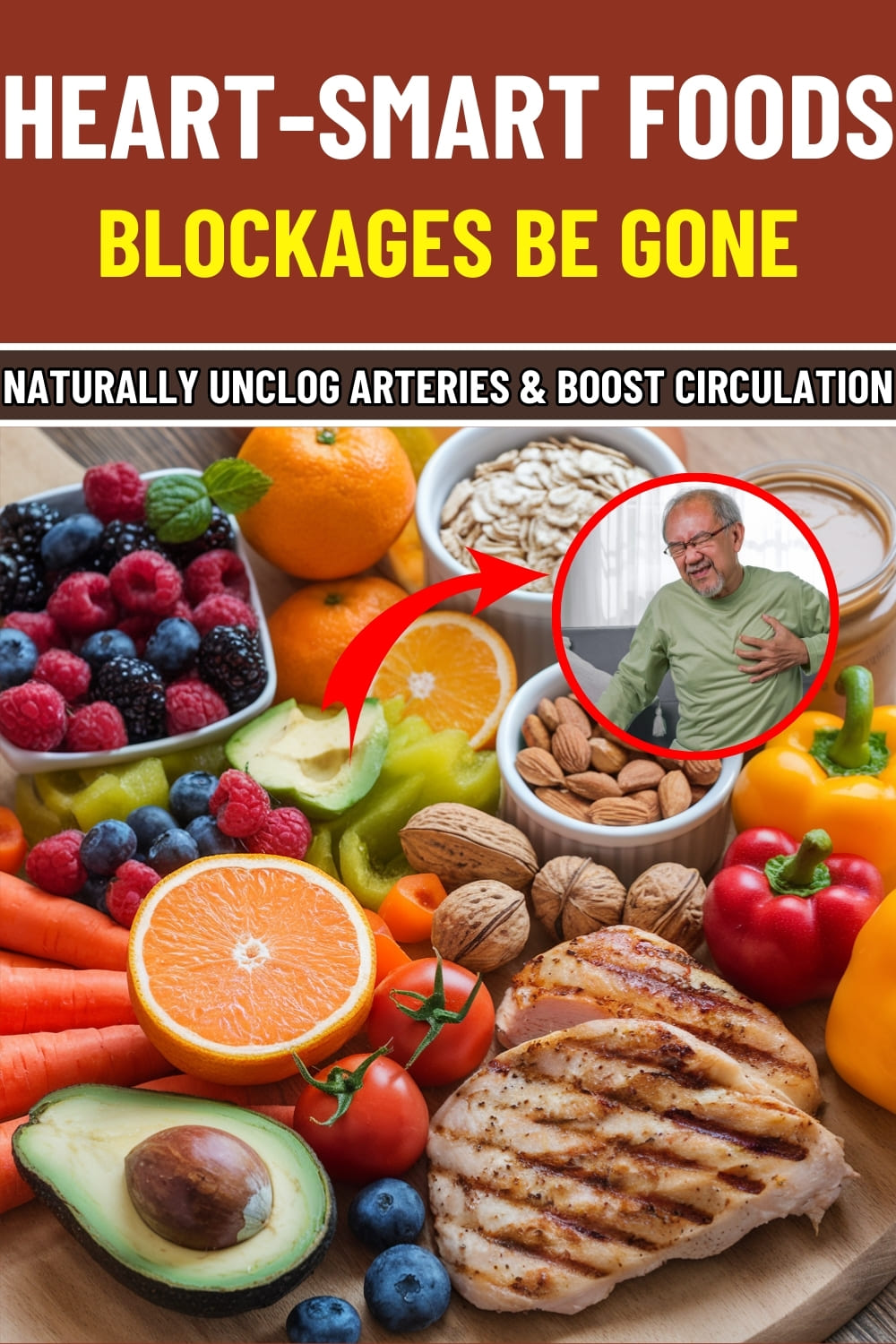Your heart works tirelessly to pump blood throughout your body, but clogged arteries can make its job much harder. When plaque builds up in your arteries, it restricts blood flow, leading to high blood pressure, heart attacks, and other cardiovascular problems.
Luckily, the right diet can help keep your arteries clean and your heart strong. The following 20 foods have been scientifically proven to reduce plaque, lower cholesterol, and improve circulation.
Including these in your daily meals can help prevent heart disease and keep you feeling your best.
1. Avocados
Avocados are loaded with monounsaturated fats, which help lower LDL (bad) cholesterol and increase HDL (good) cholesterol.
A 2015 study published in the Journal of the American Heart Association found that including one avocado daily in a moderate-fat diet reduced LDL cholesterol levels significantly.
Nutritional Value (per 100g):
-
485 mg potassium
-
14.7 g healthy fats
-
10 g fiber
How to Use:
-
Spread avocado on whole-grain toast.
-
Add slices to salads and sandwiches.
-
Blend into smoothies for a creamy texture.

2. Fatty Fish
Fatty fish like salmon, mackerel, and sardines are rich in omega-3 fatty acids, which reduce inflammation and prevent blood clot formation. A study in Circulation found that people who consumed fish regularly had a 30% lower risk of coronary heart disease.
Nutritional Value (per 100g of salmon):
-
2.3 g omega-3 fatty acids
-
20 g protein
-
13 mg calcium
How to Use:
-
Grill or bake salmon with olive oil and herbs.
-
Add mackerel to salads or sandwiches.
-
Enjoy sardines with whole-grain crackers.

3. Olive Oil
Olive oil, especially extra-virgin, is high in antioxidants and monounsaturated fats that help lower cholesterol and protect arterial walls. The PREDIMED study showed that a Mediterranean diet rich in olive oil reduced cardiovascular disease risk by 30%.
Nutritional Value (per tablespoon):
-
119 calories
-
14 g fat (mostly monounsaturated)
How to Use:
-
Drizzle over salads and roasted vegetables.
-
Use as a cooking oil alternative to butter.
-
Add to homemade dressings and marinades.

4. Nuts
Almonds, walnuts, and cashews are packed with fiber, antioxidants, and healthy fats that support heart health. A study published in The New England Journal of Medicine found that regular nut consumption reduced the risk of heart disease by 30%.
Nutritional Value (per 100g of walnuts):
-
654 calories
-
65 g fat (mainly omega-3 and polyunsaturated fats)
-
15 g protein
How to Use:
-
Snack on a handful of mixed nuts.
-
Sprinkle chopped nuts over oatmeal or yogurt.
-
Blend into nut butter spreads.

5. Berries
Berries such as blueberries, strawberries, and raspberries contain high levels of antioxidants that help reduce inflammation and lower cholesterol.
A study in The American Journal of Clinical Nutrition found that eating berries improved heart function and reduced arterial stiffness.
Nutritional Value (per 100g of blueberries):
-
57 calories
-
2.4 g fiber
-
9 mg vitamin C
How to Use:
-
Blend into smoothies.
-
Add to yogurt, oatmeal, or salads.
-
Eat fresh as a snack.

6. Garlic
Garlic contains allicin, a compound that lowers blood pressure and prevents plaque accumulation in arteries. Research from The Journal of Nutrition found that aged garlic extract reduced arterial plaque by 80% in patients with coronary artery disease.
Nutritional Value (per 100g):
-
149 calories
-
33 mg calcium
-
17 mg vitamin C
How to Use:
-
Mince fresh garlic into sauces and dressings.
-
Roast whole garlic for a milder taste.
-
Add to stir-fries and soups.

7. Chia Seeds
Chia seeds are rich in omega-3 fatty acids, fiber, and antioxidants, all of which help reduce inflammation and lower cholesterol levels.
A study published in The Journal of Nutrition, Metabolism & Cardiovascular Diseases found that consuming chia seeds improved heart health by lowering blood pressure and reducing arterial plaque.
Nutritional Value (per 100g):
-
486 calories
-
17 g omega-3 fatty acids
-
34 g fiber
How to Use:
-
Add to smoothies and yogurt.
-
Soak in water to create a gel-like consistency for puddings.
-
Sprinkle over oatmeal or salads.

8. Pomegranates
Pomegranates contain powerful antioxidants, such as polyphenols and anthocyanins, that help protect arterial walls from damage and reduce plaque buildup.
Research from Atherosclerosis Journal showed that daily pomegranate juice consumption led to a 30% reduction in arterial plaque over a year.
Nutritional Value (per 100g):
-
83 calories
-
236 mg potassium
-
10 mg vitamin C
How to Use:
-
Drink fresh pomegranate juice.
-
Add seeds to salads and yogurt.
-
Blend into smoothies.

9. Spinach
Spinach is packed with nitrates, which help dilate blood vessels and improve circulation. A study in The Journal of Clinical Hypertension found that consuming nitrate-rich vegetables like spinach lowered blood pressure and reduced arterial stiffness.
Nutritional Value (per 100g):
-
23 calories
-
558 mg potassium
-
2.9 g protein
How to Use:
-
Add fresh spinach to salads and smoothies.
-
Sauté with olive oil and garlic for a heart-healthy side dish.
-
Blend into soups and sauces.

10. Beets
Beets are another nitrate-rich food that helps improve blood flow and reduce arterial stiffness. Research in Hypertension found that beetroot juice significantly lowered blood pressure in hypertensive individuals.
Nutritional Value (per 100g):
-
43 calories
-
325 mg potassium
-
9.6 g carbohydrates
How to Use:
-
Drink fresh beet juice.
-
Roast beets and add to salads.
-
Blend into smoothies or soups.

11. Oranges
Oranges are loaded with vitamin C, flavonoids, and fiber, all of which help reduce inflammation and lower cholesterol levels.
A study in The American Journal of Clinical Nutrition found that drinking orange juice improved blood vessel function and reduced arterial stiffness.
Nutritional Value (per 100g):
-
47 calories
-
200 mg potassium
-
53 mg vitamin C
How to Use:
-
Drink freshly squeezed orange juice.
-
Add orange slices to salads.
-
Use zest in dressings and marinades.

12. Dark Chocolate
Dark chocolate (at least 70% cocoa) is rich in flavonoids, which help lower blood pressure and improve blood vessel function. A study in Circulation found that dark chocolate consumption reduced arterial stiffness and improved circulation.
Nutritional Value (per 100g):
-
546 calories
-
43 g fat (mostly healthy fats)
-
11 g fiber
How to Use:
-
Eat a small piece as a healthy treat.
-
Add dark chocolate shavings to oatmeal or yogurt.
-
Use in homemade energy bars.

13. Turmeric
Turmeric contains curcumin, a compound that has anti-inflammatory and antioxidant properties. A study in The International Journal of Cardiology found that curcumin helped prevent artery blockages and reduced inflammation.
Nutritional Value (per 100g):
-
354 calories
-
10 g fiber
-
8 mg iron
How to Use:
-
Add turmeric to soups and curries.
-
Blend into smoothies with black pepper for better absorption.
-
Drink turmeric tea with honey and lemon.

14. Apples
Apples are high in pectin, a type of soluble fiber that helps lower cholesterol and prevent plaque buildup in arteries. A study published in The European Journal of Nutrition found that apple consumption was linked to lower cholesterol levels and improved heart health.
Nutritional Value (per 100g):
-
52 calories
-
195 mg potassium
-
2.4 g fiber
How to Use:
-
Eat raw as a snack.
-
Slice into salads or oatmeal.
-
Make homemade applesauce.

15. Lentils
Lentils are rich in fiber, plant-based protein, and polyphenols that support heart health. Research in The Journal of Nutrition found that lentil consumption reduced blood pressure and improved vascular function.
Nutritional Value (per 100g):
-
116 calories
-
9 g protein
-
8 g fiber
How to Use:
-
Add to soups and stews.
-
Cook and toss into salads.
-
Use as a meat substitute in veggie burgers.

16. Flaxseeds
Flaxseeds are loaded with omega-3 fatty acids, lignans, and fiber, all of which help reduce inflammation and improve artery health. A study in Hypertension found that daily flaxseed consumption lowered blood pressure in hypertensive individuals.
Nutritional Value (per 100g):
-
534 calories
-
27 g fiber
-
22 g protein
How to Use:
-
Blend into smoothies.
-
Sprinkle over oatmeal or yogurt.
-
Use ground flaxseeds in baking.

Cautions and Precautions
While these foods are beneficial for artery health, balance is key. Overconsumption of high-fat foods, even healthy ones, can lead to excess calorie intake.
Individuals on medication for heart disease or blood pressure should consult their doctor before making dietary changes. Additionally, some foods, such as garlic and turmeric, can interact with certain medications.
Disclaimer
This article is for informational purposes only and does not constitute medical advice.
Always consult with a healthcare professional before making significant dietary changes, especially if you have underlying health conditions or are taking medication.

16 Best Artery-Cleansing Foods That Can Shield You from Heart Attacks
